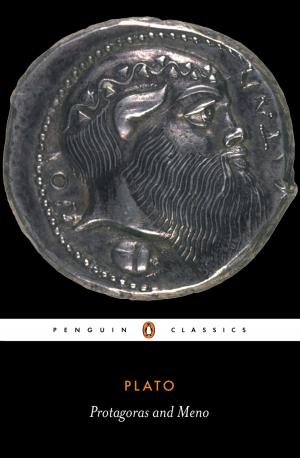| Author: | Roger Knight | ISBN: | 9780141977027 |
| Publisher: | Penguin Books Ltd | Publication: | October 24, 2013 |
| Imprint: | Penguin | Language: | English |
| Author: | Roger Knight |
| ISBN: | 9780141977027 |
| Publisher: | Penguin Books Ltd |
| Publication: | October 24, 2013 |
| Imprint: | Penguin |
| Language: | English |
From Roger Knight, established by his multi-award winning book The Pursuit of Victory as 'an authority ... none of his rivals can match' (N.A.M. Rodger), Britain Against Napoleon is the first book to explain how the British state successfully organised itself to overcome Napoleon - and how very close it came to defeat.
For more than twenty years after 1793, the French army was supreme in continental Europe, and the British population lived in fear of French invasion. How was it that despite multiple changes of government and the assassination of a Prime Minister, Britain survived and won a generation-long war against a regime which at its peak in 1807 commanded many times the resources and manpower?
This book looks beyond the familiar exploits of the army and navy to the politicians and civil servants, and examines how they made it possible to continue the war at all. It shows the degree to which, as the demands of the war remorselessly grew, the whole British population had to play its part. The intelligence war was also central. Yet no participants were more important, Roger Knight argues, than the bankers and traders of the City of London, without whose financing the armies of Britain's allies could not have taken the field.
The Duke of Wellington famously said that the battle which finally defeated Napoleon was 'the nearest run thing you ever saw in your life': this book shows how true that was for the Napoleonic War as a whole.
Roger Knight was Deputy Director of the National Maritime Museum until 2000, and now teaches at the Greenwich Maritime Institute at the University of Greenwich. In 2005 he published, with Allen Lane/Penguin, The Pursuit of Victory: The Life and Achievement of Horatio Nelson, which won the Duke of Westminster's Medal for Military History, the Mountbatten Award and the Anderson Medal of the Society for Nautical Research. The present book is a culmination of his life-long interest in the workings of the late 18th-century British state.
From Roger Knight, established by his multi-award winning book The Pursuit of Victory as 'an authority ... none of his rivals can match' (N.A.M. Rodger), Britain Against Napoleon is the first book to explain how the British state successfully organised itself to overcome Napoleon - and how very close it came to defeat.
For more than twenty years after 1793, the French army was supreme in continental Europe, and the British population lived in fear of French invasion. How was it that despite multiple changes of government and the assassination of a Prime Minister, Britain survived and won a generation-long war against a regime which at its peak in 1807 commanded many times the resources and manpower?
This book looks beyond the familiar exploits of the army and navy to the politicians and civil servants, and examines how they made it possible to continue the war at all. It shows the degree to which, as the demands of the war remorselessly grew, the whole British population had to play its part. The intelligence war was also central. Yet no participants were more important, Roger Knight argues, than the bankers and traders of the City of London, without whose financing the armies of Britain's allies could not have taken the field.
The Duke of Wellington famously said that the battle which finally defeated Napoleon was 'the nearest run thing you ever saw in your life': this book shows how true that was for the Napoleonic War as a whole.
Roger Knight was Deputy Director of the National Maritime Museum until 2000, and now teaches at the Greenwich Maritime Institute at the University of Greenwich. In 2005 he published, with Allen Lane/Penguin, The Pursuit of Victory: The Life and Achievement of Horatio Nelson, which won the Duke of Westminster's Medal for Military History, the Mountbatten Award and the Anderson Medal of the Society for Nautical Research. The present book is a culmination of his life-long interest in the workings of the late 18th-century British state.















